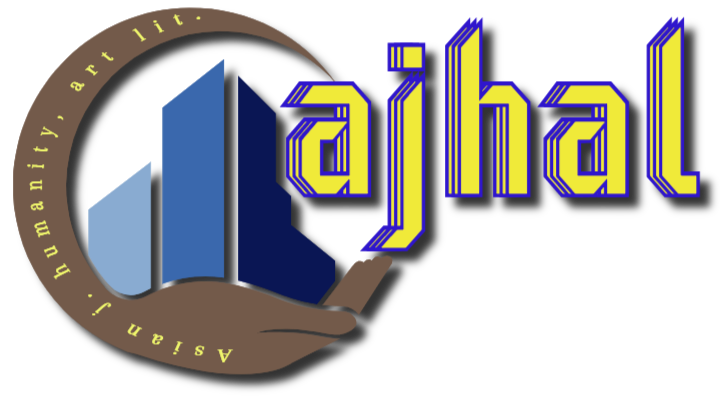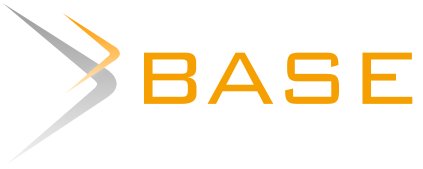Cognitive Learning Strategies and the Students in Tertiary Institution
DOI:
https://doi.org/10.18034/ajhal.v3i2.307Keywords:
Learning, application, cognitive learning strategies, awarenessAbstract
The level of students educational performances remain sources of concern to every stakeholder in the education sector. Many techniques have been tried to find the solution to this problem. Researchers have recommended different methods more especially cognitive learning strategies. Recently, students have been exposed to cognitive learning strategies, yet the performances of students do not justify the application of these strategies. The researchers examined the extent of students’ awareness of these cognitive strategies as well as the extent of the application. The study was guided by two purposes and two research questions. The study adopted the descriptive survey design. In carrying out the study Faculty of education, University of Nigeria was used. The results indicated that the students are aware of almost all the cognitive strategies, but the problem was that the students minimally applied these learning strategies. While some were not applied at all.
Downloads
References
Affini, J. (1996). 150 ways to increase motivation in the classroom. Boston: All & Bacon.
Ahmed AA, Siddique MN and Masum AA. 2013. Online Library Adoption in Bangladesh: An Empirical Study University of Bahrain Best Practices in Management, Design and Development of e-Courses: Standards of Excellence and Creativity. Manama: IEEE. DOI: https://doi.org/10.1109/ECONF.2013.30
American Association for the Advancement of Science (1996). Benchmarks for science Literacy. Cary. NC Author.
American Association for the Advancement of Science (2005). Benchmarks for Science Library New York: Oxford University Press.
Beyer, B. (1995). Critical thinking. Bloomington, IN Phi Delta Kappa. The educational Foundation, Fastback No, 385.
Blanton, B. (2005). The application of the cognitive learning theory to instructional Design. International Journal of Instructional Media. 25, 2,171-180.
Borich, G.D. (2011). Effective teaching methods. Research-based practice (7th.ed) Boston Allyn and Bacon.
Broich, G.D. & Tombari, M. (2004). Educational assessment for the elementary and middle school classroom (2nd.ed). Upper Saddle River, NJ: Merrill/Prentice Hall.
Burke, K. (2006). Form standard to rubrics in six steps: Tools for assessing students learning K-8. Thousand Oaks, CA Crown.
Chambelian, D. (1998). ESP in the classroom: Practice and education Oxford. The British Council.
Chamber Lain, D. (1998). ESP in the Classroom: Practice and education Oxford. The British Council.
Charleswarth, R. (1996). Understand child development (4th ed) Boston Delmar publisher.
Chinn, C.A. & Brewer, W.F. (2001). Models of data: A theory of how people evaluate data cognition and instruction, 19, 323-393. DOI: https://doi.org/10.1207/S1532690XCI1903_3
Chinn, C.A. (2006). Learning to argue. In A.M.O.’ Donnell, C. Hmelosilver, & G. Erkens (Eds). Collaborative Learning, Reasoning and Technology (pg 355-383). Mahwah, N.J.: Erlbaum.
Chuska, (2003). Improving classroom questions: A teacher’s guide to increasing student motivation participation and higher-level thinking (2nd ed). Bloomington, IN Phi Delta Kappa educational foundation.
Costa, A. & Kallick, B. (2003). Assessment strategies for self-directed learning Thousand Oaks’, CA: Crown. DOI: https://doi.org/10.4135/9781483328782
Diffily, D.& Sassman C. (2002). Project-based learning with young Children. Portsmouth, NH: Heinemann.
Edge, P. (2007). Teaching and learning in the language classroom. Oxford. Oxford University press.
Fafunwa, A.B. (1996). History of education in Nigeria. Ibadan: WPS Education Ltd.
Goetz, E.T, Alexander, P.A. & Ash, M.J. (1992). Educational psychology. A Classroom Perspective. Upper Saddle River. NJ. Merrill/Prentice Hall.
Guthrie, J.T., Wigfield, A. Barbosa, P., Perencevich, K.C., Taboada, A., Davis, M.H., et al (2004). Increasing reading comprehension and engagement through concept orientated reading instruction. Journal of educational psychology, 96,403-423. DOI: https://doi.org/10.1037/0022-0663.96.3.403
Hard, v., Kirio, C. & Yamamoto, s. (2008). Collaborating for project-based learning in Grades 9-12. Columbus. OH: Linworth Publishing.
Hartly, J. (1998). Learning and study: A research perspective. London. Routledge.
Hester, J. (1994). Teaching for thinking. A program for school improvement through critical thinking across the curriculum. Durham, N.C. Carolina Academic press.
Hester, J. (1998). Teaching for thinking. A program for school improvement through critical thinking across the curriculum. Durham, NC. Carolina Academic Press.
Highet, G.G. (2000). The art of teaching. London: Methuen.
Keirn, J. (1988). Design for self instruction, principles, processes and issues in developing self-directed learning. Boston: Allyn and Bacon.
Keirns, J. S., & Palincsat, A. (2011). A practical guide to reciprocal teaching New York. McGraw-Hill.
Langer, J.A. (2001). Beating the odds’ teaching middle and high school students to read and write well. American Educational Research Journal, 38, 837-880. DOI: https://doi.org/10.3102/00028312038004837
Lerra, M. (2014). The Dynamics and Challenges of Distance Education at Private Higher Institutions in South Ethiopia. Asian Journal Of Humanity, Art And Literature, 1(3), 137-149. DOI: https://doi.org/10.18034/ajhal.v1i3.362
Lubliner, S., & Palincsat, A. (2011). A practical guide to reciprocal teaching. New York McGraw-Hill.
Mangal, S. K. (2010). Advanced educational psychology (2nd. ed) New Delhi PHI Learning Private limited.
Martin, G.N., Carlson, N.R. & Buskist, W. (2007). Psychology (3rd ed). London, Allyn and Bacon.
National Council for the social studies (2002).The National standard for social studies teachers. Sliver Springs MD. Author.
National council for the social studies (2006). National standard for social studies teacher. Silver Springs, MD. Author.
National Council of Teachers of English (2006). Guideline for the preparation of teachers of English language arts. Urbana IL. Author.
National Council of Teachers of English (1996). Standard for the English language arts. Urbana, IL Author.
National Council of Teachers of Mathematics (2002). Principles and standard for school mathematics. Reston VA: Author.
National Council of Teachers of Mathematics (2006). Illuminating NCTM’s principles for school mathematics, Reston. VA: Author.
Norton, L.S. & Crowley, C.M. (1995). Can students be helped to Learn how to Learn? An Evaluation of an Approaches to Learning Programme for First Years Students: Higher Education 29,307-328. DOI: https://doi.org/10.1007/BF01384496
Oczkus, I. (2005). Reciprocal Teaching at work. Strategies for interpreting reading comprehension. Newark: DE. International Reading Association.
Palincsar, A. & Brown A. (1989). Classroom dialogs to promote self-regulated comprehension. In J. Brophy (ed), Advances in Research on Teaching I, 35-71. Greenwich. CT. JAI. Press.
Posamentier, A. & Krulik, S. (2008). Problem-solving strategies for efficient and elegant solutions. Grades 6-12. A resource for the mathematics teachers. Thousand Oaks. CA: Corwin.
Punch, K.F. (2011). Introduction to research methods in education. London SAGE publications Ltd.
Ramalingam, P. (2006). Dictionary of psychology. New Delhi Academic (India) Publishers.
Roopnarine, J.N. (1986). Mothers’ and fathers behaviors towards the sex-typed toy play of their infant sons and daughters. Sex Roles, 12, 59-68. DOI: https://doi.org/10.1007/BF00287848
Rusk, R.R. (2000). The doctrines of the great educator. London. The Macmillan Press Ltd.
Sadeghi, B., & Safari, R. (2012). The Impact of Collaborative Task on the FL Vocabulary Acquisition. ABC Journal Of Advanced Research, 1(2), 8-14. DOI: https://doi.org/10.18034/abcjar.v1i2.7
Saljo, R. (1991). Learning and learning. Higher Education, 8,443-51. DOI: https://doi.org/10.1007/BF01680533
Slavin, R. (1990). Achievement effect of ability grouping in secondary schools. A Best Evidence Synthesis. Review of Educational Research 60,471-499. DOI: https://doi.org/10.3102/00346543060003471
Slavin, R. (2001). Cooperative learning and inter group relations. In J. Banks and C. Banks (eds) Handbook of Research on Multicultural Education. San Francisco: Jossey-Boss.
Stadler, F. (2004). Induction and deduction in the sciences. New York. Springer. DOI: https://doi.org/10.1007/978-1-4020-2196-1
Tombari, M. & Broich, G. (1999). Authentic assessment in the classroom. Practice and Applications, Upper Saddle River. NJ Merril/Prentice Hall.
Tsegaye, M., & Moges, B. (2014). Roles And Challenges of Secondary School Instructional Leadership for the Achievement of Student Learning: The Case of South Gondar Administrative Zone, Amhara Region, Ethiopia. Asian Journal Of Humanity, Art And Literature, 1(1), 48-69. DOI: https://doi.org/10.18034/ajhal.v1i1.282
Tye, B. & O’ Brien, I.(2002). Why are experienced teachers learning the profession? Phi Delta Kappan 84, 1, 4-32. DOI: https://doi.org/10.1177/003172170208400108
Vasta, R. & Lightfoot Cox, B. (1993). Understanding gender difference as on the water-level problem. The role of spatial perception. Merrill- Palmer Quarterly 39, 391-414.
Vasta, R. (1979). Studying Childre; An introduction to research methods San Francisco, C.A.: W.H. Freeman.
Viadero, D. (2003). R.I. District focuses on research-based Common Language. Education Week, 22, 29,120-121.
Wiles, J.W. & Bondi, J.C. (2011). Curriculum development. A Guide to Practice (8th ed). New Jersey Upper Saddle Rivers.
Williams, R. (2003). Higher order thinking skills. Challenging all students to achieve. Thousand Oaks, CA: Corwin.
--0--















